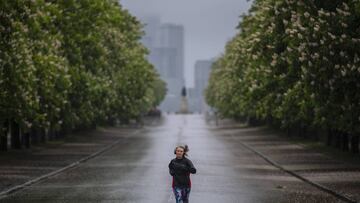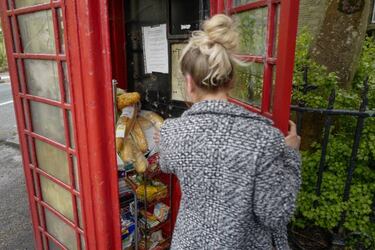Strava, cycling and seeds: how Covid-19 has changed the way we live
With the UK lockdown likely to continue for another week at least, we take a look at the positive changes Brits are making to their daily lives.


Everyday life has changed unimaginably in the last two months as people are forced to abandon the habits and routines that had become so settled. Prime Minister Boris Johnson is to address the nation on Sunday evening to outline his “road map” to get the UK out of lockdown but with no drastic changes expected in the near future we take a look at how the UK has adapted to this ‘new normal’?
**Follow all the latest news related to coronavirus in our live blog**
Transport
Social distancing restrictions have made public transport a last resort for those who need to get around and the police have repeatedly stressed that car journeys should be kept to a minimum. Generally people are travelling far less but, when they are, green alternatives are certainly on the rise.
During lockdown cycle-to-work schemes have seen a 200% increase in use by emergency service workers. Cycling in general has become much more popular with Halfords reporting “very strong” bicycle sales in the last week. Cities around the UK are responding to the trend by adapting to make it easier and safer for cyclists to get around, with Mayor of London Sadiq Khan planning to introduce temporary bike lanes as part of his “streetscape” programme.

A recent poll conducted by consultant SYSTRA suggested that 61% of Britons would be nervous of using public transport post-lockdown, hinting that this trend may continue even when the restrictions are eased.
Fitness
In 2019 Statista found that the UK has around 6,700 health and fitness clubs with approximately 9.7 million members. Of European nations, only Germany has more members and the UK’s fitness clubs generate an annual turnover of nearly £2 billion. With these spaces currently out of use those wanting to keep fit have turned to technology for an alternative.
A home fitness app produced by Peloton, the cycling brand, has reported a 77% rise in downloads compared to last year and now offers boot camp, yoga and strength classes. Likewise, running apps like Strava, Nike Training Club and Map My Run has all recorded huge spikes in interest.
One of the most popular yoga-related YouTube channels, Yoga With Adrienne, has also seen a massive increase in viewers as people look for new ways to stay in shape at home. The number of daily views on her videos have tripled since mid-March when lockdown became a reality for people around the world.
Food
For the early weeks of lockdown food shortages seemed like a real possibility with canned and dried goods snapped up and supermarket shelves bare. Restrictions at supermarkets helped bring that back under control but many had already began looking for alternative sources.
Related stories

Man arrested after reckless act against supermarket worker
Seeds Co-operative, a UK-based seed producer, have had to limit their online sales to a window of just two hours a week due to what it calls “exceptional demand”. Their managing director David Price told the BBC that orders had been six times higher than they were a year ago. With lockdown beginning in the UK’s spring many felt it was the perfect time to start growing their own produce.

Interestingly, the boom is not just restricted to vegetable seeds with Seeds Co-operative confirming that sales of flower seeds have also seen a big increase. Maybe these trends are not just out of necessity and the cyclists, yoga enthusiasts and amateur gardeners are here to stay.